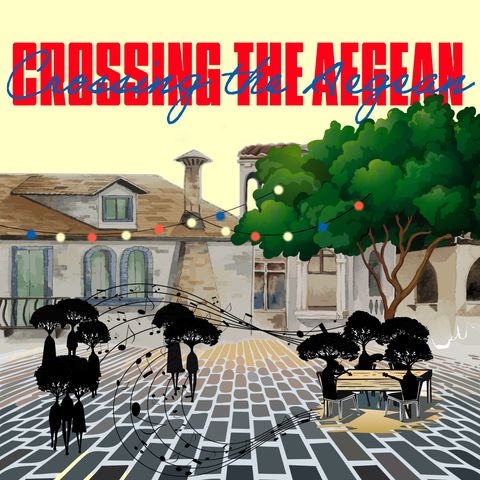"Maybe Only the Walls Know Now": Listening to Migration's Memory through Music

Sign up for free
Listen to this episode and many more. Enjoy the best podcasts on Spreaker!
Download and listen anywhere
Download your favorite episodes and enjoy them, wherever you are! Sign up or log in now to access offline listening.
Description
Welcome to the new episode of our podcast series “Crossing the Aegean: A Century of People on the Move.” In this episode, we continue to explore the impact of the...
show moreOur guest today is Ezgi Ceylan. Ezgi graduated from Boğaziçi University’s Department of Translation and Interpreting (Translation Studies) and earned her MA in Comparative Literature from Istanbul Bilgi University. After two years as a lecturer at Beykent University, she began working as an English teacher. She has a keen interest in folk music and actively performs. Ezgi is also engaged in memory studies, multilingual music, and ecological agriculture. Currently residing in Imbros, she has been performing multilingual music for many years and has a wide repertoire that includes Greek, Kurdish, Armenian, Arabic, and Ladino.
Don’t forget to follow Ezgi’s YouTube channel, where she performs multilingual songs, as well as her music initiative “Duvarlar Bile Biliyor” (“Even The Walls Know”).
In this episode, Ezgi shares in detail her first encounter with the musical culture of Imbros and the impact of the music she encountered on collective memory. She explains how her visits to the villages of Imbros, the migration stories she witnessed, and the traces she found in abandoned houses have influenced her performances. She also highlights the bonds formed with local musicians such as Timoleon Çaknis and the efforts to preserve the music of Imbros through album projects. Throughout the conversation, she critically examines the deep pain and struggle for identity embedded in the songs from the exchange period. The discussion also touches on how rebetiko music reflects the hardships faced by migrants, including loss of identity and social exclusion. Finally, Ezgi treats the audience to songs from both rebetiko and Imbros, showcasing the unifying role of music in preserving memory.
Information
| Author | Hafıza Merkezi |
| Organization | Kerem Ciftcioglu |
| Website | - |
| Tags |
-
|
Copyright 2024 - Spreaker Inc. an iHeartMedia Company
